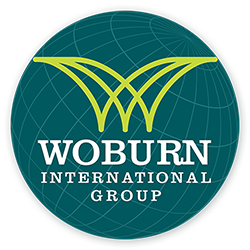June Ranson
CEO, Woburn International
Past Chair of NZAMI

Immigration New Zealand has updated its Accredited Employer Work Visa (AEWV) policy, which may lead to slower processing times for employers. However, these changes are aimed at providing better protection for migrants.

How will new Immigration changes impact employers?
Huge changes: The government has just announced immediate changes to the Accredited Employer work visa (AEWV) system. These changes will have quite a significant impact for certain employers.
Greater challenges for bringing over lower skilled workers
The biggest change are new barriers being put in place for bringing in lower skilled workers. Low skilled workers will be determined by the level of the positions as set by Australian and New Zealand Standard Classification of Occupations (ANZCO). Those positions that fall under level 4 and 5 will be considered as lower skilled.
Employers looking to fill low skilled roles will now have to advertise positions within NZ for 21 days rather than 14 days, as well as engage with Work and Income New Zealand to ensure there are no suitable New Zealanders for the role. There is also now a minimum skill requirement meaning most migrants will be required to have at least 3 years’ of relevant work experience OR a relevant qualification at level 4 or above.
The migrant must also have a provable standard of English language. This is achieved if the migrant holds citizenship from an English-speaking country: Canada, Ireland, United Kingdom or the USA, and you have spent at least 5 years working or studying in one of these countries or in Australia or NZ, you will not need to complete an approved English language test.
Alternatively if the migrant is not from one of these countries the low skilled worker will be required to meet a minimum standard of English through one of the following: Level 4 IELTS, TOEFLIBT 31 overall, PTE Academic 29 overall, Cambridge English B2 First 142 overall, Cambridge English B2 First For Schools 142 overall, Occupational English Test (OET) Grade D or higher in all 4 skills: Listening, reading, writing and speaking and the maximum stay for low skilled workers is being restricted to 3 years.
Migrants do have additional requirements for eligibility to gain the visa. These additional requirements for migrants mean New Zealand will be less attractive for lower skilled workers looking to relocate, unless they are prepared to upskill in New Zealand.
New responsibilities for Accredited employers
There are now more requirements at the accreditation stage and during the accreditation period for employers.
1. As part of being an accredited employer it is now the employer’s responsibility to take steps to ensure migrants are suitably skilled before sending them a job token. This means that employers need to keep accurate records of the steps they have taken to determine a potential employee’s skills and provide evidence of this to Immigration New Zealand if requested.
2. NOTE: Accredited employers will now also be responsible for reporting if a worker on a AEWV leaves your employment a month or more before their visa expires.
3. All new AEWVs will be issued with a condition requiring you to employ migrants for at least 30 hours per week. If you cannot offer the minimum hours to a visa holder, you put your accreditation at risk.
4. Engaging with Work and Income New Zealand (WINZ) for lower skilled roles will also now be a requirement. Accredited employers will need to engage with WINZ directly which can be done through the new online form. A copy of the Work and Income Engagement Check will need submitting as part of the job check along with other advertising evidence.
Failure to adhere to the new changes puts you at risk that Immigration New Zealand may revoke or suspend your accreditation.
The above changes are being introduced to try and tighten the number of migrants coming to New Zealand as well as reduce the risk of migrants being exploited. While some employers won’t be affected too much, those who depend on low skilled workers will need to take a serious look at their staffing needs.
I have already outlined above the significant changes to the Immigration policy as it relates to the Employer Accredited Work Visa. I have covered the impact on those lower skilled jobs at levels 4 and 5 and lower paid jobs, but there are some others which have resulted in the cancellation of 11 trade roles which were for inclusion on the Green List.
The significance of the Green List clearly sets out that if you work for an accredited employer or you have a job offer from an accredited employer and your role is on Tier 1 of the Green List you can apply for your work visa before you arrive – processing time (12 weeks or longer), provided you meet requirements and if you go Straight to Residence approximately 3 months. For Tier 2 occupations you can apply for Work to Residence, processing time 4 months approximately which means you must complete two years of work beforehand in NZ, in the specified occupation before seeking residence.
Green List Role changes
The previously announced roles will not be added to the Green List:
• Paving Plant Operator
• Metal Fabricator
• Pressure Welder
• Welder
• Fitter (General)
• Fitter and Turner
• Fitter-Welder
• Metal Machinist (First Class)
• Panel Beater
• Vehicle Painter
• Road Roller Operator
Other changes include bus or truck drivers on an open work visa on or after 7 April 2024 will not be eligible to apply for a Transport Work to Residence visa.
Those who already hold an Accredited Employer Work Visa (AEWV), or who have applied for an AEWV (and are later approved) and those on open work visas who have already started work, will still be eligible for a Transport Work to Residence visa.
Construction & Infrastructure Sectors
Previous plans to include the following occupations onto the Green List, will not now proceed.
• Driller’s Assistant
• Earthmoving Labourer
• Earthmoving Plant Operator general
• Linemarker
• Machine Operators not elsewhere classified
• Mechanic’s Assistant
• Road Traffic Controller
Occupations added to the Green List include:
• Straight to Residence
o Aviation Engineer (Avionics, Aeronautical, Aerospace Engineer)
o Naval Architect (aka Marine Designer)
o ICT Database and Systems Administrator
o Mechanical Engineering Technician
o Aircraft Maintenance Engineer
• Work to Residence
o Corrections Officer
If your job is not included on the Green List and it is not exempt from paying the medium wage you can still recruit providing you have met WINZ requirements for skill levels 4 and 5 and you pay $29.66 per hour.
Who is June Ranson?
June Ranson, the CEO of Woburn International, brings unique insights to New Zealand immigration policy discussions and visa changes that take place. Having operated in the immigration sector since 1991, and served as the Chair of the New Zealand Immigration Association from 2014 to 2022, June is known for supporting NZ businesses that rely on skilled immigrants and for advocating on behalf of those looking to relocate. Read more about June here.
You may not know but we have been assisting people from all around the World relocate to New Zealand for many many years … and we are very good at it. Contact our office at +64 4 569 4861, or email services@woburn.co.nz.


